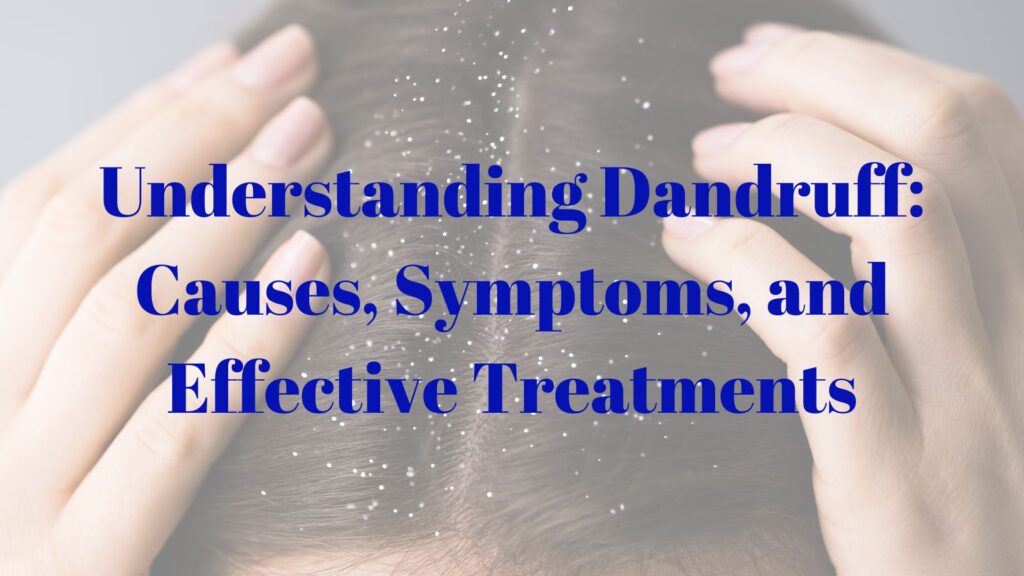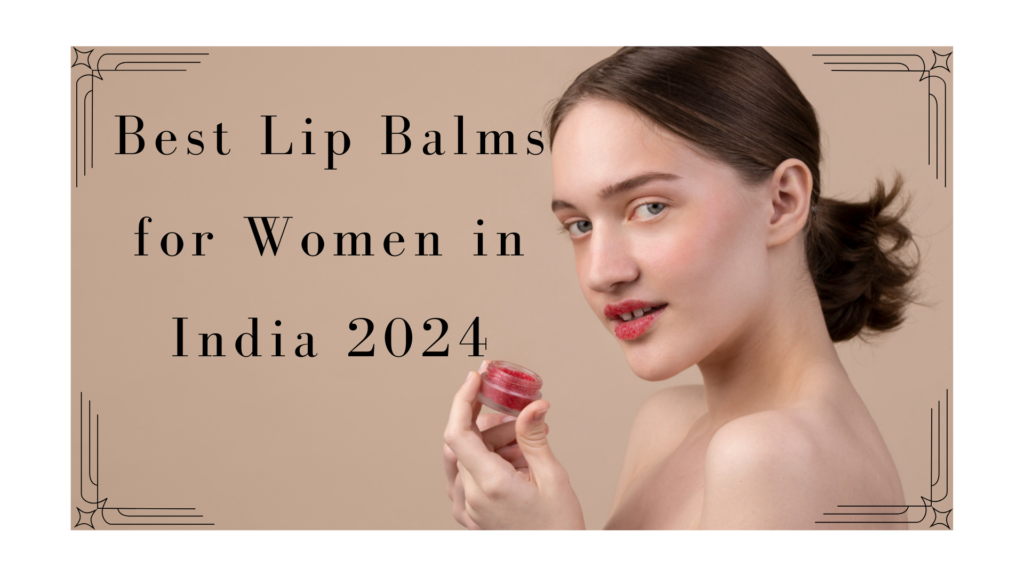Dandruff is a common scalp condition that affects millions of people worldwide, causing flakiness and irritation. While not harmful, it can be a source of discomfort and self-consciousness. Understanding what dandruff is, its underlying causes, symptoms, and the most effective treatments can help you manage this condition effectively. In this comprehensive guide, we delve into all the essential details surrounding dandruff, giving you the knowledge needed to address it head-on.
Table of Contents
What is Dandruff?
Dandruff is a skin condition that principally influences the scalp. It involves the shedding of dead skin cells, leading to white or yellowish flakes appearing on the scalp, hair, and shoulders. Dandruff is often accompanied by itchiness and irritation, although the severity of symptoms can vary.
While dandruff is generally not serious or contagious, it can be a chronic condition that requires ongoing management. The main issue with dandruff lies in its visibility and the discomfort it causes, especially when flakes become noticeable in hair or on clothing. Understanding the underlying causes can help identify the most appropriate treatment options.
Causes of Dandruff
Dandruff can be triggered by a variety of factors, ranging from skin conditions to environmental influences. Let’s explore the main causes:
1. Dry Skin
One of the most well-known reasons for dandruff is dry skin. When your scalp lacks moisture, it can become irritated and flaky. This type of dandruff usually results in smaller, less oily flakes. People who experience dry skin conditions, such as during winter months or in dry climates, may notice an increase in dandruff.
2. Seborrheic Dermatitis
Seborrheic dermatitis is a condition that causes oily, irritated skin. It is one of the leading causes of dandruff. This condition affects not only the scalp but also other parts of the body, such as the eyebrows, sides of the nose, and behind the ears. Seborrheic dermatitis is characterised by red, greasy skin covered with flaky white or yellowish scales.
3. Malassezia
Malassezia is a type of yeast that naturally lives on the scalp. In some people, it can grow excessively, feeding on the oils produced by hair follicles. This excess growth can irritate the scalp and lead to more skin cells growing, which then die and fall off, resulting in dandruff.
4. Shampooing and Hair Care Products
Not washing your hair frequently enough can allow oil and dead skin cells to accumulate, which can lead to dandruff. On the flip side, over-washing your hair or using harsh shampoos can strip the scalp of its natural oils, causing dryness and flakiness. Some hair care products, including conditioners and styling gels, can also irritate the scalp and contribute to dandruff formation.
5. Skin Conditions
Certain skin conditions, like psoriasis and dermatitis, can cause dandruff. Psoriasis results in an accumulation of dead skin cells, forming thick, scaly patches that can flake off. Eczema, a condition characterised by itchy, inflamed skin, can also lead to flakiness of the scalp.
6. Diet
What you eat can impact the health of your skin and scalp. A diet lacking in certain nutrients, such as zinc, B vitamins, and essential fatty acids, may increase your risk of developing dandruff. These nutrients are essential for maintaining healthy skin and controlling oil production.
7. Stress
Stress does not directly cause dandruff, but it can aggravate existing conditions. High levels of stress can weaken the immune system, making the body less effective at fighting off dandruff-causing conditions like seborrheic dermatitis.
8. Hormonal Changes
Hormonal changes, especially during puberty, can trigger excess oil production in the scalp. This increase in oil can contribute to the development of dandruff. Similarly, women may experience dandruff flare-ups during their menstrual cycles due to hormone fluctuations.
9. Climate and Environment
Cold, dry air during the winter months often exacerbates dandruff, as it can lead to a dry and flaky scalp. Conversely, hot, humid climates can increase oil production, which may contribute to dandruff in some individuals.
Symptoms of Dandruff
Dandruff manifests itself through several noticeable symptoms. Recognizing these signs early can help you address the condition before it worsens. Common symptoms include:
1. Flaky Scalp:The most characteristic symptom of dandruff is white or yellowish flakes of dead skin that appear on the scalp, in the hair, or on clothing.
2. Itchiness: Dandruff often causes itching on the scalp, which may be mild or severe, depending on the cause.
3. Redness and Irritation: In more severe cases, especially with conditions like seborrheic dermatitis, the scalp can become red and irritated.
4. Greasy or Oily Patches on the Scalp: Oily dandruff may be accompanied by greasy patches on the scalp due to an excess production of sebum.
5. Dry or Tight Scalp: For those with dry skin, the scalp may feel tight and uncomfortable, with minimal oil present.
6. Hair Loss: Although dandruff itself does not cause hair loss, scratching the scalp due to itchiness can damage hair follicles, potentially leading to hair breakage or thinning.
Effective Treatments for Dandruff
Dandruff can often be managed effectively with proper scalp care and over-the-counter treatments. Depending on the severity of your dandruff, you may need to try a few different methods to find what works best for you. Below are some of the most effective treatments for dandruff.
1. Medicated Shampoos
Medicated shampoos are one of the most common and effective ways to treat dandruff. These shampoos contain active ingredients that target the underlying causes of dandruff, including:
Selenium Sulfide: Selenium sulfide slows down the rate of skin cell turnover and reduces scalp oil production, both of which help control dandruff.
Zinc Pyrithione: This ingredient has antibacterial and antifungal properties, which can reduce the growth of dandruff-causing fungi.
Ketoconazole: Ketoconazole is a powerful antifungal agent that can help reduce the presence of Malassezia on the scalp.
Salicylic Acid: This fixing sheds the scalp and eliminate dead skin cells, lessening the presence of drops.
Coal Tar: Coal tar can slow down the production of skin cells and help with conditions like psoriasis, which can contribute to dandruff.
It’s important to follow the instructions on medicated shampoos carefully. Some treatments are meant for daily use, while others should only be used a few times a week. Additionally, you may need to rotate between different shampoos to prevent your scalp from becoming resistant to one ingredient.
2. Home Remedies for Dandruff
For those who prefer natural treatments, several home remedies can help manage dandruff symptoms:
Tea Tree Oil: Tea tree oil has antifungal properties, which can help reduce dandruff. Mix a few drops of tea tree oil with a carrier oil (such as coconut oil) and massage it into your scalp.Leave it on for around 20 minutes prior to washing.
Apple Cider Vinegar: The acidity of apple cider vinegar can change the pH of your scalp, making it harder for yeast to grow. Mix equal parts apple cider vinegar and water, and use it as a rinse after shampooing.
Coconut Oil: Coconut oil can moisturize the scalp and reduce dryness, preventing the formation of dandruff flakes. Knead it into your scalp, leave it on for 60 minutes, and afterward wash it out.
Aloe Vera: Aloe vera is known for its alleviating properties. Applying aloe vera gel to the scalp can reduce itchiness and inflammation associated with dandruff.
Baking Soda: Baking soft drink goes about as an exfoliant, assisting with eliminating dead skin cells. However, it can be drying, so use it sparingly. Apply it to a wet scalp and gently massage before rinsing out.
3. Lifestyle Changes to Manage Dandruff
Sometimes, simple changes in your daily routine can help alleviate dandruff symptoms:
Diet: Ensure you’re getting enough essential nutrients like zinc, omega-3 fatty acids, and B vitamins, as these nutrients play a crucial role in maintaining healthy skin and scalp.
Shampooing Frequency: Depending on your scalp type, you may need to adjust how often you shampoo. If your scalp is oily, washing your hair more frequently can help control excess oil. If your scalp is dry, reducing the frequency of washing can prevent further dryness.
Hydration: Drinking enough water helps maintain the moisture levels of your skin and scalp, which can prevent dandruff caused by dryness.
Reduce Stress: Managing stress through techniques such as exercise, meditation, or hobbies can help reduce dandruff flare-ups.
4. Professional Treatments
If over-the-counter shampoos and home remedies don’t alleviate your dandruff symptoms, it may be time to see a dermatologist. A doctor can prescribe stronger treatments, including:
Topical Steroids: These can reduce inflammation and itching caused by severe dandruff or seborrheic dermatitis.
Oral Antifungal Medications: In severe cases, oral medications may be necessary to control the overgrowth of fungi on the scalp.
Preventing Dandruff
Preventing dandruff requires a combination of good hygiene and lifestyle practices. Here are some tips to keep dandruff at bay:
Maintain a Clean Scalp: Regular washing with a gentle shampoo can prevent oil and dead skin from building up.
Manage Stress: As mentioned earlier, stress can exacerbate dandruff, so try to manage stress
through relaxation techniques.
Avoid Hair Styling Products: Excessive use of hair gels, sprays, and mousses can irritate the scalp and contribute to dandruff formation.
Protect Your Scalp from Extreme Weather: Cold, dry air can trigger dandruff, so wearing a hat during winter months may help.
Conclusion
Dandruff is a common and often frustrating condition, but with the right knowledge and treatments, it can be effectively managed. Whether your dandruff is caused by dry skin, seborrheic dermatitis, or another factor, there are numerous ways to treat and prevent it. From medicated shampoos to home remedies, there is no shortage of options to explore. By taking a proactive approach to your scalp health, you can keep dandruff under control and enjoy a flake-free life.
Understanding the causes, symptoms, and treatments of dandruff is the first step toward reclaiming your scalp health. If you find that over-the-counter treatments are not working, consulting a dermatologist can provide you with personalised care tailored to your needs.
Frequently Asked Questions About Dandruff
Q1: What is dandruff?
Ans: Dandruff is a common scalp condition characterised by the shedding of dead skin cells, leading to white or yellowish flakes on the scalp, hair, and shoulders. It is frequently joined by irritation and disturbance.
Q2: What causes dandruff?
Ans: Dandruff can be caused by a variety of factors, including dry skin, oily skin conditions like seborrheic dermatitis, the overgrowth of Malassezia yeast, irregular shampooing, hair care products, stress, diet, what’s more, basic skin conditions like psoriasis or dermatitis.
Q3: Is dandruff contagious?
Ans: No, dandruff is not contagious. It is a skin condition caused by individual factors such as scalp health, skin type, or fungi overgrowth, but it cannot be spread from one person to another.
Q4: Can dandruff cause hair loss?
Ans: Dandruff itself doesn’t cause hair loss. However, excessive scratching due to itchiness can damage hair follicles, which may lead to temporary hair thinning or breakage.
Q5: What are the symptoms of dandruff?
Ans: The main symptoms of dandruff include visible flakes of dead skin on the scalp and in the hair, itching, redness, irritation, and sometimes oily or greasy patches on the scalp.
Q6: How can I get rid of dandruff?
Ans: Dandruff can often be managed with medicated shampoos containing ingredients like zinc pyrithione, selenium sulphide, or ketoconazole. Home remedies such as tea tree oil, apple cider vinegar, or coconut oil can also help. In more severe cases, a dermatologist may prescribe stronger treatments.
Q7: How frequently would it be advisable for me to wash my hair on the off chance that I have dandruff?
Ans: The recurrence of washing relies upon your scalp type. If you have an oily scalp, washing your hair more frequently can help control dandruff. For dry scalps, you may need to reduce washing to avoid stripping the scalp of natural oils. Generally, using a dandruff shampoo 2-3 times a week is effective for most people.
Q8: Can stress cause dandruff?
Ans: While stress doesn’t directly cause dandruff, it can worsen the condition by weakening the immune system, making it harder for your body to fight off dandruff-causing fungi like Malassezia.
Q9: What are the best shampoos for treating dandruff?
Ans: Shampoos containing zinc pyrithione, selenium sulphide, ketoconazole, salicylic acid, and coal tar are commonly recommended for treating dandruff. Each ingredient targets different causes of dandruff, so you may need to try several options to find the one that works best for you.
Q10: Are there natural remedies for dandruff?
Ans: Yes, natural remedies for dandruff include:
Tea tree oil: Known for its antifungal properties.
Apple juice vinegar: Helps balance the scalp’s pH.
Coconut oil: Moisturises the scalp and reduces dryness.
Aloe vera: Soothes the scalp and reduces inflammation.
Baking soda: Acts as an exfoliant to remove dead skin cells.
Q11: Can dandruff be cured permanently?
Ans: There is no permanent cure for dandruff, but it can be effectively managed with the right treatments. Dandruff may come and go depending on factors like your scalp condition, climate, and stress levels, but regular care can keep it under control.
Q12: What would be advisable for me to stay away from assuming I have dandruff?
Ans: To manage dandruff effectively, avoid:
– Harsh shampoos or hair products that can irritate the scalp.
– Excessive heat styling or using products that build up on the scalp.
– Skipping shampooing for too long, as oil and skin cells can accumulate.
– High stress levels, which can trigger dandruff flare-ups.



